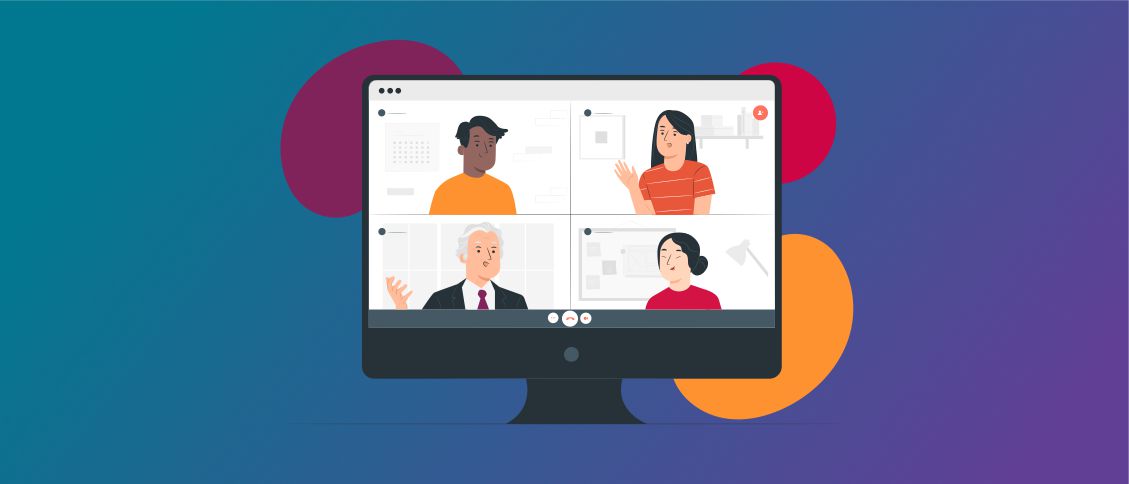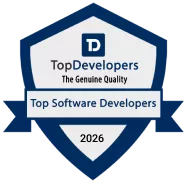What is the Delphi Programming Language?
What is Delphi? Delphi is a programming language and an integrated development environment (IDE) designed for building software apps. The first version was released in 1995. Delphi is known for its simplicity, rapid application development (RAD) capabilities, and support for object-oriented programming (OOP) principles. Sometimes it is said to be already quite archaic today. But it is still alive. And it has strong reasons for that.
What is Delphi used for now? Many software products are written in this language, including Windows applications, antivirus software, system tools, backup programs, etc. Even artificial intelligence implementations, machine learning solutions, and image manipulation programs can be based on Delphi.
Why is Delphi Important?
Delphi has managed to become an important programming language and development environment for several reasons:
- Rapid Application Development (RAD): Delphi’s visual development approach and component-based architecture enable rapid application development. This is particularly vital for businesses and developers who need to create software quickly and efficiently.
- User-Friendly IDE: The Delphi Integrated Development Environment (IDE) provides a user-friendly and comprehensive platform for software creation. It includes code editing, debugging, and visual design tools. As a result, it makes it easier for developers to build and maintain software solutions.
- Object-Oriented Programming (OOP) Support: The Delphi program relies on the Pascal language and supports object-oriented programming principles. This allows developers to create modular, reusable, and maintainable code with clear syntax, which is crucial for large and complex Delphi software projects.
- Database Connectivity: Delphi has strong support for database connectivity, making it a preferred choice for apps that require interaction with databases. Its data-aware components and tools simplify database programming tasks.
- Legacy Software: Delphi is one of those technologies that many legacy applications are built with. Delphi software is still maintained and updated. The language has a history of stability and backward compatibility, which is important for long-term software projects.
- Wide Range of Applications: The Delphi coding language can be used to develop a diverse range of products, from desktop software to enterprise solutions and mobile solutions. Its versatility makes it suitable for different domains and industries.
- Performance: Delphi apps are known for their performance, and the compiled nature of the language contributes to the creation of efficient and fast-executing software.
Key Features of Delphi Programming
- Visual Development: Delphi is well-known for its development approach. It allows programmers to create interfaces using a visual form designer. This RAD approach makes it easier and faster to build graphical user interfaces (GUI) for applications in comparison with non-visual builders.
- Component-Based Development: Delphi programming promotes component-based development. Skilled Delphi programmers can successfully create and further rely on reusable components to build solutions.
- Cross-Platform Development: Delphi allows developers to write code once and deploy applications on different operating systems, such as Windows, macOS, iOS, and Android. This helps in reaching a broader audience with a single codebase.
- Integrated Development Environment (IDE): The Delphi IDE is a comprehensive environment that includes code editing, debugging, and visual design tools. It streamlines the development process and provides a seamless experience for programmers.
- Community and Third-Party Support: Delphi has a dedicated community of developers, and there are numerous third-party components, libraries, and tools available. This ecosystem enhances the capabilities of Delphi software and provides developers with a wide range of resources to leverage in their projects.
Delphi vs Other Software
Nowadays, there are a lot of great IDEs that support numerous programming languages. But even among them, the Delphi programming language is not lost and remains one of the leaders. Moreover, it is absolutely true in relation to both the Delphi programming language, which successfully combines the latest developments and ease of use, and the Delphi programming environment itself. And, since the environment is written in the Delphi language, it remains one of the fastest development tools, requiring a minimum of computer resources. It’s also worth mentioning the little things that experienced developers like, including simple and quick Bookmarks (Shift + Ctrl + number sets the desired bookmark in the module, and the combination of Ctrl + number allows you to go to it). Everything is so simple and intuitive that there is no need for additional windows with buttons and lists of bookmarks.
When talking about Delphi programming, it is absolutely impossible to forget about third-party libraries that turn an already powerful tool into a perfect code-generation machine. If you have ever designed anything in the Delphi coding language, you are certainly familiar with TvirtualTree and TMS components.
And after Delphi introduced styles, developers got the possibility to personalize their Delphi software while staying within the “suit and tie” framework, thanks to the well-thought-out and wonderfully designed themes, including, of course, third-party ones.
Delphi Versions
Delphi has gone through various versions since its initial release in 1995. Here is an overview of some key Delphi versions:
- Borland Delphi
1995. The first official version of Delphi was a full-fledged development environment (IDE) that allowed the use of the Object Pascal programming language. Delphi 1.0 was contrasted with Visual Basic 3.0 and Microsoft’s Visual Basic 4.0 and it was superior to Visual Basic in many ways.
- Kylix
2001. This is a version of Delphi for full-fledged application development on Linux.
- Borland Delphi 7
2002. This is the latest version of the Delphi environment with the “classic” interface. It is one of the most popular Delphi versions. Delphi 7 is still used for development by some companies for various reasons (e.g., for legacy application support).
- Borland Delphi 8
2003. Delphi 8 supported application development exclusively for .NET. It was opposed to Visual Studio by Microsoft. Until then, Visual Studio had no competitors in terms of .NET application development.
- Codegear Delphi 2009
2008. This version ensures full Unicode support in VCL and RTL components.
- Embarcadero Delphi XE2
2011. It offers support for 64-bit application development for Windows, as well as support for cross-platform development of 32-bit applications for macOS and iOS using FireMonkey.
- Embarcadero Delphi XE5
2013. It provides support for the development of 32-bit Android applications using FireMonkey.
- Embarcadero Delphi 10.2 Tokyo
2017. It ensures support for the development of 64-bit console applications for Linux.
- Embarcadero Delphi 10.3 Rio
2019. This version offers support for 64-bit development on macOS and for development of graphical applications on Linux using FireMonkey (with the release of Delphi 10.3.2 Update 2).
It also supports 64-bit development for Android (with the release of Delphi 10.3.3 Update 3).
- Embarcadero Delphi 11 Alexandria
2021. It provides support for development on macOS ARM (Apple’s M1 processors).
Delphi software development currently allows you to create applications for different platforms such as Windows, macOS, iOS, Android, and Linux. It supports 32- and 64-bit development.
Why Use Delphi Programming Language: Benefits of Delphi
The Delphi computer language has not lost its relevance and today it has a unique and very attractive proposition. Delphi offers multi-platform native capabilities, low-code high-performance software development, and integration with other languages.
Benefits of Delphi programming:
- Delphi is fast.
- It is easy to deploy.
- Delphi supports all platforms.
- It has new releases on a regular basis.
- Delphi is very easy to use.
- It demonstrates high performance.
- It is an independent tool.
- It has a great community of active developers, MVPs, and partners.
Who uses Delphi today
Delphi development is still rather popular today. It is still chosen by companies and individual developers. There is still a huge number of systems and applications that rely on the Delphi programming language. Many companies still hire developers who support their Delphi system infrastructure and code base.
Delphi coding is admired by 62.77% of developers (2023 Stack Overflow Survey). Every year, developers who work with this technology get together for the annual online conference DelphiCon to discuss the latest in, on, and around Delphi software development.
Being a professional provider of software development and migration services, we see that among our clients, there are still a lot of businesses that rely on this technology and leverage all the benefits that it offers. The main thing here is to find the right approach to supporting and maintaining the code written in Delphi and to timely modernize such solutions. Need help with these tasks? At Softacom, we are always at your disposal.












